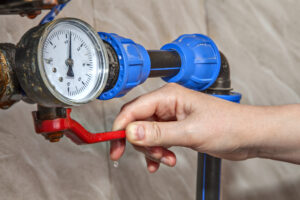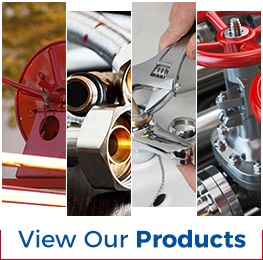
When people think of plumbing, they think of the basement getting flooded or the kitchen sink growing a leak. But everyday plumbing is more than that, especially when it comes to preventive measures. For example, have you ever heard of testing your water pressure? In case you haven’t –– as is the case with most of us –– we are going to tell you everything you need to know with the following blog post.
Why you should test your water pressure
If your water pressure is too high, you risk damaging your entire plumbing system. Water pressure that is simply too much can exert devastating force on all plumbing lines and fixtures and can even lead to blowouts, especially in flex lines or washing machine hoses. As you can imagine, neither scenario is ideal, especially sink they risk flooding your home.
And, of course, water pressure that is too low can also cause its own challenges. Have you ever tried showering under a slow drip? You want your water to come out with gusto.
Simply put, you should test your water pressure to make sure that it comes out just right. Your home’s plumbing infrastructure –– and your morning routine –– will thank you for it.
How to test your water pressure
In order to test your water pressure, you will need a water pressure gauge. You will want to pick a hose spigot close to the home’s main water supply. For example, if your home gets its water from a well, you will want to test a faucet or fixture that is close to the well’s pressure tank.
Once you’ve identified a faucet you will be testing, you want to make sure water isn’t being used anywhere else inside or outside the house, otherwise the reading will be inaccurate.
Then, screw the pressure gauge directly onto the faucet. This process is very easy and can be done manually with your hands. Make sure the connection is tight enough so as not to allow any leaks.
Turn the faucet on and and read the pressure that appears on the gauge’s dial. The ideal pressure will be somewhere between 40-50 psi; anything above 60 psi is a cause of concern, especially if it is above 75 psi.
Need professional help?
ASJ Industrial Hose & Fittings has your back. They offer an impressive inventory for all things valves, gauges, and more, including water pressure gauges. Give them a call today if you are anywhere near Corona, California: (951) 735-1351.



 Phone:
Phone: